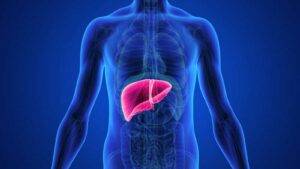Are you curious about the intricacies of lung function and respiratory diseases? Look no further! In this comprehensive post, we have compiled the top 20 questions surrounding these vital aspects of our health. Whether you’re seeking answers about common respiratory ailments, the impact of lifestyle choices, or ways to enhance lung function, we’ve got you covered. Prepare to dive into the fascinating world of our respiratory system as we unravel the mysteries and provide valuable insights. Let’s breathe in knowledge together!
Understanding Lung Function: The Key to Better Respiratory Health
1. What is asthma and how is it diagnosed?
Asthma is a chronic respiratory condition characterized by inflammation and narrowing of the airways, leading to difficulty breathing. It is diagnosed through a combination of medical history, physical examination, and lung function tests such as spirometry. A doctor may also use other tests like allergy testing or imaging to rule out other possible causes.
2. What are the symptoms and causes of chronic obstructive pulmonary disease (COPD)?
The symptoms of chronic obstructive pulmonary disease (COPD) include shortness of breath, chronic cough, productive cough with mucus, wheezing, and chest tightness. The primary cause of COPD is long-term exposure to irritants such as cigarette smoke, air pollution, and chemical fumes. Other factors like genetics and respiratory infections also play a role in developing COPD.
Just a little heads up: some of the links on this site may be affiliate links, which means if you make a purchase through them, we might get a little kickback. But don’t worry, it won’t cost you a cent extra! Think of it as the universe secretly thanking us for helping you find a great deal. Your support keeps the good vibes flowing.
3. How can I manage my allergies to prevent respiratory flare-ups?
Managing allergies to prevent respiratory flare-ups involves avoiding allergens that trigger your symptoms. This may include staying indoors when pollen counts are high, using allergen-proof bedding, washing hands frequently, and keeping the house clean. Additionally, taking prescribed allergy medications, such as antihistamines or nasal corticosteroids, can help alleviate symptoms and prevent flare-ups.
4. What are the early warning signs of lung cancer?
Early warning signs of lung cancer can vary but may include persistent cough, coughing up blood or rust-colored sputum, chest pain, hoarseness, unexplained weight loss, and recurring respiratory infections. It is important to seek medical attention if you experience any of these symptoms, especially if you have a history of smoking or other risk factors for lung cancer.
5. Can exposure to secondhand smoke increase the risk of developing respiratory diseases?
Yes, exposure to secondhand smoke can increase the risk of developing respiratory diseases. Breathing in secondhand smoke can irritate the airways and cause inflammation, leading to conditions like asthma, bronchitis, and pneumonia. Protecting yourself from secondhand smoke by avoiding smoking areas or encouraging others to quit smoking can help reduce the risk of respiratory diseases.
6. How can I improve lung health and reduce the risk of respiratory infections?
To improve lung health and reduce the risk of respiratory infections, you can quit smoking, as smoking damages the lungs and weakens the immune system. Regular exercise, such as cardiovascular workouts and breathing exercises, can strengthen the lungs. Proper hand hygiene, getting vaccinated against respiratory infections like the flu and pneumonia, and avoiding exposure to pollutants can also help maintain respiratory health.
7.What is the difference between acute bronchitis and pneumonia?
Acute bronchitis and pneumonia are both respiratory infections, but they affect different parts of the respiratory system. Acute bronchitis is an inflammation of the bronchial tubes, whereas pneumonia is an infection that causes inflammation in the air sacs of the lungs. While acute bronchitis is usually caused by a viral infection and tends to resolve on its own, pneumonia can be caused by viruses, bacteria, or fungi and often requires medical treatment.
8. Is it possible to reverse the damage caused by smoking on the respiratory system?
Although complete reversal of damage caused by smoking on the respiratory system may not be possible, quitting smoking can significantly slow down the progression of respiratory damage. The lungs have a remarkable ability to heal to some extent. Over time, lung function can improve, and the risk of developing smoking-related diseases can decrease. Adopting a healthy lifestyle, including regular exercise and avoiding exposure to secondhand smoke, can further support respiratory recovery.
9. What are the treatment options for cystic fibrosis and how can it be managed?
Treatment for cystic fibrosis, a genetic disorder that affects the lungs and other organs, aims to alleviate symptoms, prevent complications, and improve the quality of life. This may include daily airway clearance techniques, inhaled medications to open the airways, pancreatic enzyme supplements, and nutritional support. Antibiotics may be prescribed for preventing or treating lung infections, and specialized therapies, such as gene modulator medications, are also available to manage specific mutations of cystic fibrosis.
10. How does air pollution affect respiratory health and what measures can be taken to minimize the impact?
Air pollution can have significant adverse effects on respiratory health, including increasing the risk of respiratory infections, aggravating asthma symptoms, and contributing to the development or worsening of chronic respiratory diseases. Minimizing the impact of air pollution can be achieved through various measures, such as reducing personal exposure by avoiding outdoor activities during pollution peaks, using indoor air purifiers, and wearing masks in polluted areas. Implementing sustainable practices, supporting clean energy alternatives, and advocating for stricter environmental regulations can also help reduce air pollution levels and protect respiratory health.
11. What are the warning signs of a respiratory emergency and when should I seek immediate medical attention?
Warning signs of a respiratory emergency include severe shortness of breath, rapid breathing, chest pain or tightness, bluish skin or lips, confusion, and extreme fatigue. Immediate medical attention should be sought if any of these symptoms are present, as they may indicate a serious condition such as an asthma attack, pulmonary embolism, or a severe respiratory infection.
12. Can stress and anxiety worsen respiratory symptoms and if so, how can they be managed?
Yes, stress and anxiety can worsen respiratory symptoms. When we are stressed or anxious, our body releases stress hormones, which can cause rapid breathing, chest tightness, and hyperventilation. Managing stress and anxiety is important to minimize the impact on respiratory symptoms. Techniques such as deep breathing exercises, meditation, yoga, and seeking therapy or counseling can help alleviate stress and anxiety.
13. What are the common triggers for asthma attacks and how can they be avoided?
Common triggers for asthma attacks include allergens (such as pollen, dust mites, and pet dander), respiratory infections, exercise, cold air, air pollution, certain medications, and emotional stress. To avoid these triggers, individuals with asthma should be aware of their personal triggers and take steps to minimize exposure. This may involve using air purifiers, avoiding triggers whenever possible, taking medications as prescribed, and having an asthma action plan in place.
14. Are there any natural remedies or alternative therapies that can help improve respiratory function?
There are several natural remedies or alternative therapies that may help improve respiratory function. These include breathing exercises like pursed lip breathing and diaphragmatic breathing, steam inhalation with essential oils like eucalyptus or peppermint, herbal teas such as chamomile or ginger, and acupuncture. However, it is important to consult with a healthcare professional before starting any alternative therapies to ensure safety and effectiveness.
15. What is pulmonary fibrosis and what are the available treatment options?
Pulmonary fibrosis is a progressive lung disease that causes scarring and stiffening of the lungs. Treatment options for pulmonary fibrosis include medications, such as corticosteroids and immunosuppressants, to reduce inflammation and slow down the progression of the disease. Oxygen therapy may be used to improve breathing, and pulmonary rehabilitation programs can help manage symptoms and improve quality of life. In severe cases, lung transplantation may be considered.
16. Does weather or climate have an impact on respiratory conditions and how can it be managed?
Weather and climate can indeed have an impact on respiratory conditions. Cold and dry weather can cause airways to constrict, leading to difficulty in breathing, especially for individuals with asthma or chronic obstructive pulmonary disease (COPD). On the other hand, hot and humid weather can worsen air quality, triggering respiratory symptoms. Managing these impacts can include using a humidifier or dehumidifier to maintain optimal indoor humidity levels, wearing appropriate clothing to protect against extreme temperatures, and monitoring air quality forecasts to plan outdoor activities.
17. How can I strengthen my respiratory system through exercise and physical activity?
Exercise and physical activity can play a crucial role in strengthening the respiratory system. Aerobic exercises like brisk walking, jogging, swimming, and cycling can improve lung capacity, increase oxygen uptake, and enhance overall respiratory function. Strength training exercises can also help strengthen the muscles involved in respiration. It is advisable to start slowly and gradually increase the intensity and duration of exercise under the guidance of a healthcare professional.
Just a little heads up: some of the links on this site may be affiliate links, which means if you make a purchase through them, we might get a little kickback. But don’t worry, it won’t cost you a cent extra! Think of it as the universe secretly thanking us for helping you find a great deal. Your support keeps the good vibes flowing.
18. What is the connection between respiratory diseases and smoking, and how does quitting smoking improve lung health?
Smoking is strongly linked to respiratory diseases such as chronic bronchitis, emphysema, and lung cancer. Quitting smoking is the most effective way to improve lung health and reduce the risk of developing respiratory diseases. Within weeks of quitting, lung function starts to improve, as the airways become less inflamed and mucus production decreases. Over time, the risk of lung diseases and other complications associated with smoking significantly decreases. Getting support from healthcare professionals, joining smoking cessation programs, and using nicotine replacement therapies can increase the chances of successfully quitting smoking.
19. Are there any specific dietary recommendations to support respiratory health?
While there are no specific dietary recommendations solely for respiratory health, adopting a healthy and balanced diet can support overall lung function. Eating a diet rich in fruits, vegetables, whole grains, and lean proteins can provide essential nutrients and antioxidants that promote lung health. Consuming omega-3 fatty acids found in fatty fish and nuts may reduce inflammation in the lungs. Staying well-hydrated is also important to keep mucus thin and easier to clear from the airways.
20. Can respiratory diseases be effectively managed with medications and what are the potential side effects to be aware of?
Respiratory diseases can often be effectively managed with medications. For conditions such as asthma and COPD, bronchodilators, corticosteroids, and inhaled medications are commonly prescribed to reduce inflammation, open up the airways, and relieve symptoms. Antibiotics may be prescribed for respiratory infections, while anticoagulants are used to treat pulmonary embolism. It is important to follow the prescribed medication regimen and consult with a healthcare professional to understand potential side effects, such as allergic reactions, gastrointestinal issues, and respiratory irritation. Regular monitoring and adjustments to medication may be necessary to ensure optimal management of respiratory diseases.
While I do cite reputable sources, I am not a medical professional. Please use professional medical advice when making any health-related decisions.
1. Mayo Clinic – https://www.mayoclinic.org/diseases-conditions/asthma/symptoms-causes/syc-20369653
2. American Lung Association – https://www.lung.org/lung-health-diseases/lung-disease-lookup/copd/symptoms-causes-risk-factors.html
3. Asthma and Allergy Foundation of America – https://www.aafa.org/allergy-asthma-prevention/
4. American Cancer Society – https://www.cancer.org/cancer/lung-cancer/early-detection/signs-of-lung-cancer.html
5. American Lung Association – https://www.lung.org/quit-smoking/smoking-facts/secondhand-smoke
6. American Lung Association – https://www.lung.org/lung-health-diseases/wellness/lung-health-tips
7. Mayo Clinic – https://www.mayoclinic.org/diseases-conditions/bronchitis/expert-answers/pneumonia/faq-20057821
8. American Lung Association https://www.lung.org/quit-smoking/smoking-facts/health-effects/reversing-effects-of-smoking.html
9. Cystic Fibrosis Foundation – https://www.cff.org/What-is-CF/Treatments/
10. American Lung Association – https://www.lung.org/clean-air/outdoors/air-pollution/
11. American Lung Association – https://www.lung.org/lung-health-diseases/warning-signs-of-lung-disease
12. Mayo Clinic – https://www.mayoclinic.org/diseases-conditions/respiratory-infections/expert-answers/stress-and-respiratory-infections/faq-20158695
13. Asthma and Allergy Foundation of America – https://www.aafa.org/asthma-triggers/
14. National Center for Complementary and Integrative Health – https://www.nccih.nih.gov/health/cam-basics/study-questions/usefulness-and-safety-of-alternative-therapies-for-people-with-chronic-pulmonary-conditions
15. American Lung Association – https://www.lung.org/lung-health-diseases/lung-disease-lookup/pulmonary-fibrosis/learn-about-pulmonary-fibrosis/treatment-options
16. National Institutes of Health – https://www.ncbi.nlm.nih.gov/pmc/articles/PMC2839059/
17. American Lung Association – https://www.lung.org/lung-health-diseases/lung-disease-lookup/exercise-for-lung-health
18. Centers for Disease Control and Prevention – https://www.cdc.gov/tobacco/basic_information/health_effects/respiratory/index.htm
19. American Lung Association – https://www.lung.org/lung-health-diseases/wellness/diet-and-nutrition
20. American Academy of Allergy, Asthma, and Immunology – https://www.aaaai.org/conditions-and-treatments/treatments/allergy-shots-(immunotherapy)/risks-and-side-effects.
Conclusion:
We hope this comprehensive article sheds light on the most pressing questions surrounding these topics. From understanding the mechanics of our lungs to exploring the causes and treatments of respiratory ailments, knowledge is a powerful tool in our quest for better health. Remember, whether it’s adopting a healthy lifestyle, seeking professional medical advice, or taking preventative measures, you have the power to improve your lung function and protect your respiratory system. So, take a deep breath, put your newfound knowledge into action, and let your lungs flourish!

Just a little heads up: some of the links on this site may be affiliate links, which means if you make a purchase through them, we might get a little kickback. But don’t worry, it won’t cost you a cent extra! Think of it as the universe secretly thanking us for helping you find a great deal. Your support keeps the good vibes flowing.


































































































